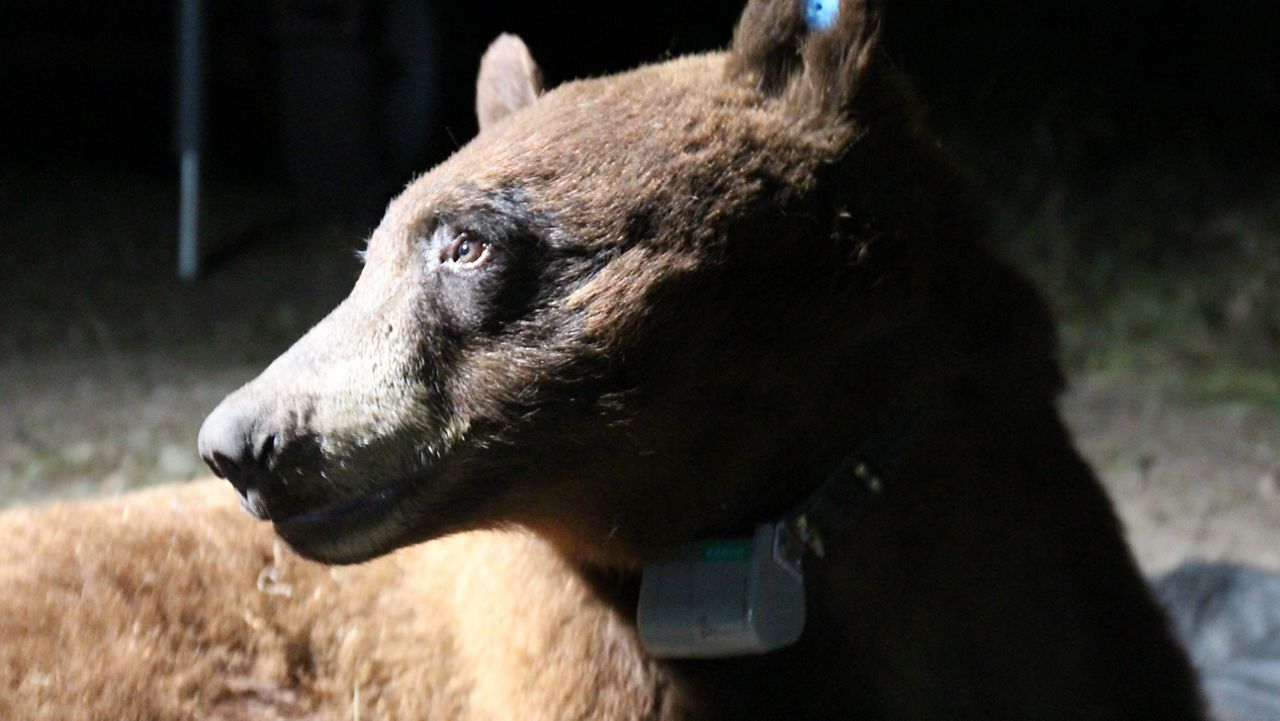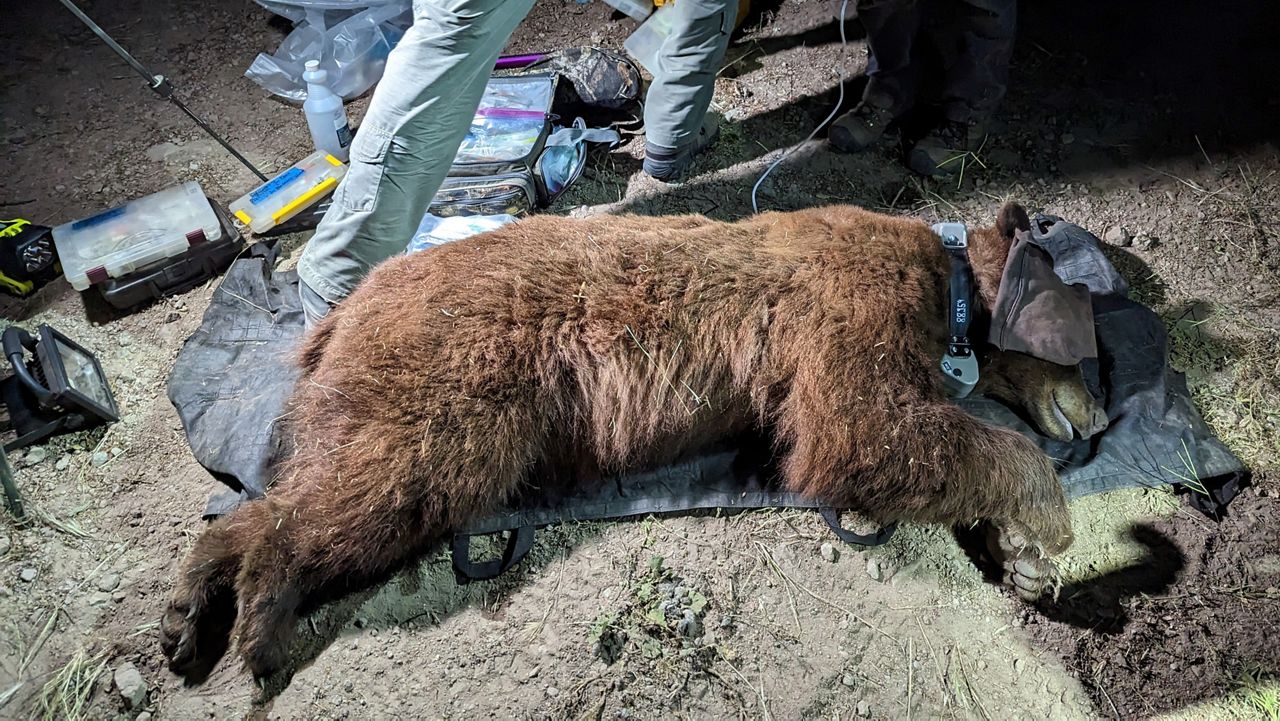LOS ANGELES (CNS) — In a rare find, National Park Service biologists captured a 210-pound black bear in the Santa Monica Mountains, marking the first time such an animal has been caught and radio-collared in the range, officials said Wednesday.
The bear was nabbed April 23 in a "natural area of the western Santa Monica Mountains," south of the Ventura (101) Freeway, according to the NPS. The animal, believed to be 3 to 4 years old, was dubbed BB-12.
"He appears to be the only bear here in the Santa Monica Mountains, and he's likely been here for almost two years based on our remote camera data," Jeff Sikich, lead field biologist for the NPS' long-running study of mountains lions, said in a statement.
"This seems to be our first resident bear in the 20 years we have conducted mountain lion research in the area. It will be interesting to see how he shares the landscape with our other resident large carnivores."

Park Service officials said the nearest known population of black bears in the area is in the Santa Susana Mountains north of the Ronald Reagan (118) Freeway, although there have been occasional sightings south of the 118 and even south of the 101.
Authorities said the bear captured last week may be the same one that has been spotted on remote cameras since July 2021 in areas ranging from Malibu Creek State Park to Point Mugu State Park.
Sikich said that, as BB-12 gets older, it may attempt to move north across the 101 Freeway to search for a mate, since there is no evidence of other bears locally. He said the radio transmitter that was placed on the bear will help researchers track where he might try to cross the freeway, and also "help us better understand habitat connectivity for wildlife in the area."
Biologists noted that bear sightings are rare in the Santa Monica Mountains, although one was found dead under the rubble of a landslide in Malibu Creek State Park in the early 2000s, and another was spotted on trail cameras three times in 2016.
Authorities said black bears "rarely become aggressive when encountered, and attacks on people are uncommon."
"If you encounter a bear while hiking, keep a safe distance and slowly back away," NPS officials said in a statement. "Let the bear know you are there. Make yourself look bigger by lifting and waving your arms and making noise by yelling, clapping your hands, using noisemakers, or whistling. DO NOT run and do not make eye contact. Let the bear leave the area on its own. If a bear makes contact, fight back."



